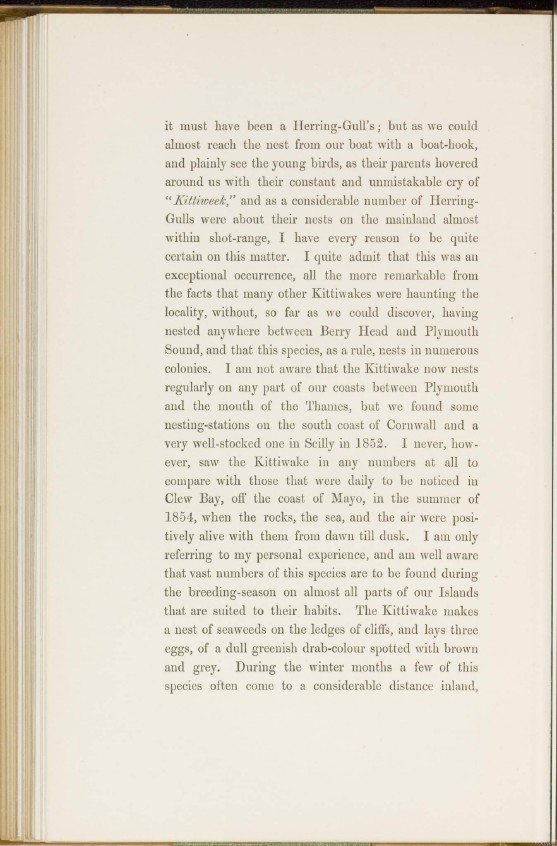
it must have been a Herring-Gull's; but as we could
almost reach the nest from our boat with a boat-hook,
and plainly see the young birds, as their parents hovered
around us with their constant and unmistakable cry of
" Kittiweek," and as a considerable number of Herring-
Gulls were about their nests on the mainland almost
within shot-range, I have every reason to be quite
certain on this matter. I quite admit that this was an
exceptional occurrence, all the more remarkable from
the facts that many other Kittiwakes were haunting the
locality, without, so far as we could discover, having
nested anywhere between Berry Head and Plymouth
Sound, and that this species, as a rule, nests in numerous
colonies. I am not aware that the Kittiwake now nests
regularly on any part of our coasts between Plymouth
and the mouth of the Thames, but we found some
nesting-stations on the south coast of Cornwall and a
very well-stocked one in Scilly in 1852. I never, however,
saw the Kittiwake in any numbers at all to
compare with those that were daily to be noticed in
Clew Bay, off the coast of Mayo, in the summer of
1854, when the rocks, the sea, and the air were positively
alive with them from dawn till dusk. I am only
referring to my personal experience, and am well aware
that vast numbers of this species are to be found during
the breeding-season on almost all parts of our Islands
that are suited to their habits. The Kittiwake makes
a nest of seaweeds on the ledges of cliffs, and lays three
eggs, of a dull greenish drab-colour spotted with brown
and grey. During the winter months a few of this
species often come to a considerable distance inland,